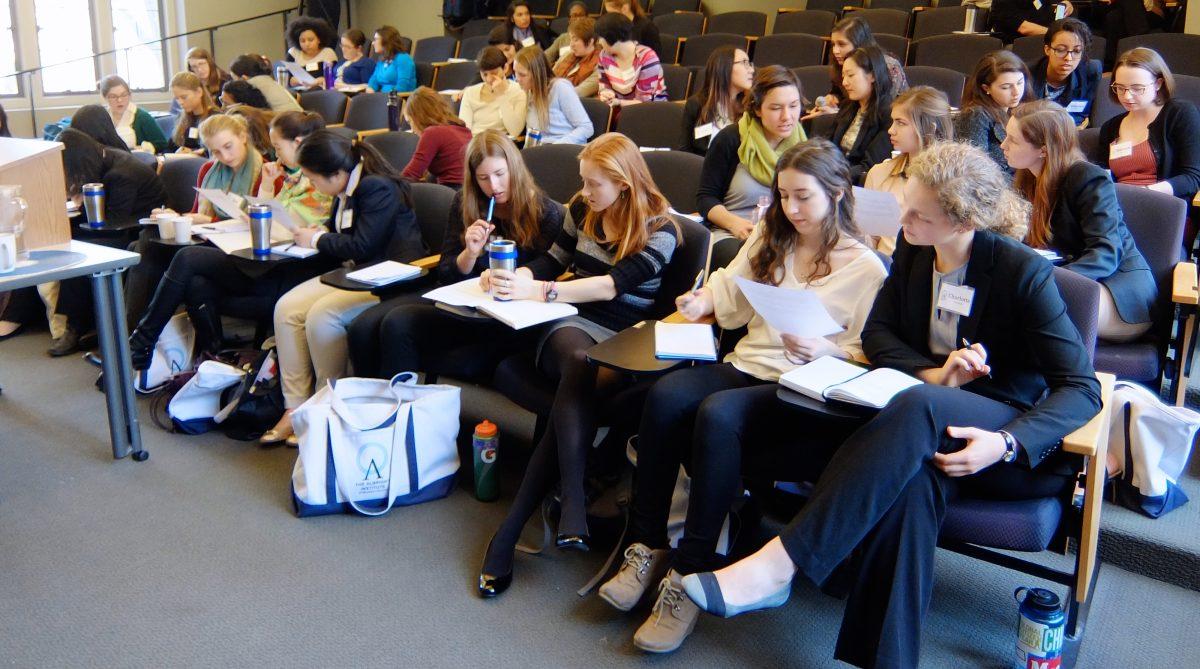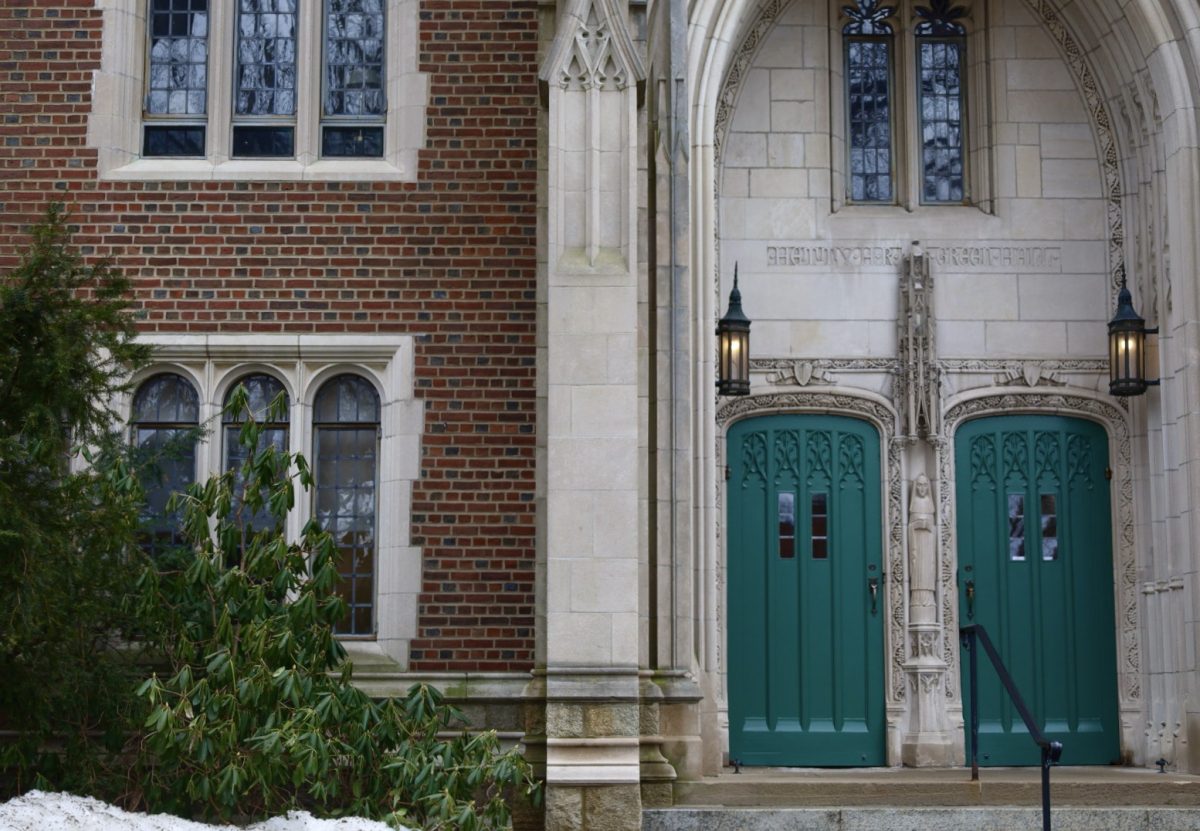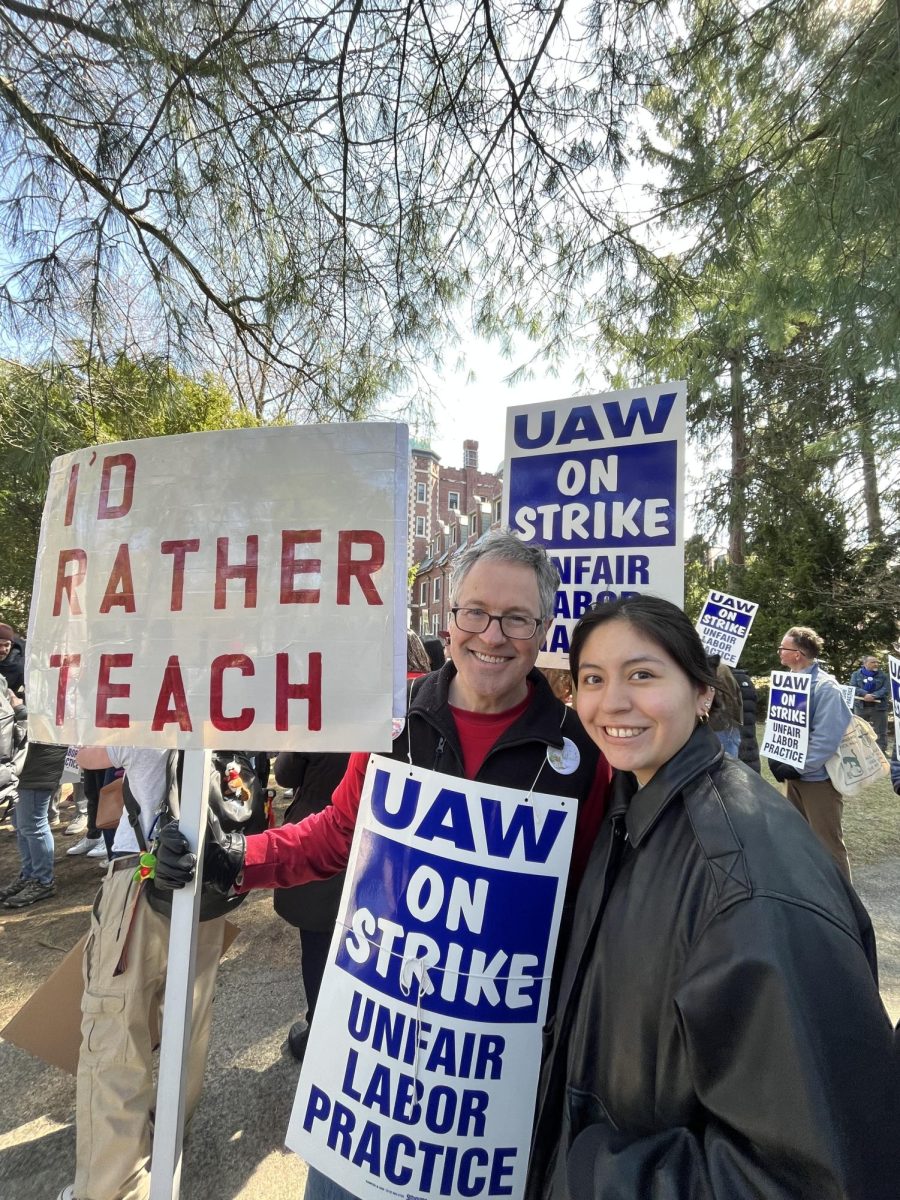Wellesley faculty, staff, students and Albright Fellows gathered in a series of classes and panel discussions during Wintersession to examine the role of the United States in an increasingly complex and rapidly changing world. These events, open to the public and held in Wellesley’s Academic Quad, focused on issues ranging from the impact of hormones on human behavior to the use of force and moral obligation. As varied as these themes were, all of the events had a shared goal: to apply the interdisciplinary skills of the liberal arts education to global affairs.
The Albright Institute held 27 lectures and panel discussions that invited alumnae and outside experts alike to weigh in on the political, ecological and economic issues expected to dominate in 2015. Among the Wellesley lecturers were economics professor David Lindauer, english professor Larry Rosenwald and political science professor Paul MacDonald. Presenters from other academic institutions included Professor Katherine Marshall ’67 of Georgetown University, Ambassador Nicholas Burns of the Harvard Kennedy School, and Professor Patricia Greene of Babson College.
Albright Fellow Emma Ambrogi ’16 enjoyed Professor Rosenwald’s talk in particular, which applied the lessons of literature to society and the international arena.
“He provided us with the great quote that ‘In a good play, everyone is right,’ meaning that every person on every side of a conflict feels that they are doing the right thing. This quote served as a good reminder for the rest of the Institute’s Wintersession program, because almost every person who came to speak with us presented a difficult issue, and it was important to remember that those on both sides of the issue feel justified in their positions,” Ambrogi said.
Another highlight for Ambrogi and others in the audience was the final discussion in Alumnae Hall on “Harnessing Global Diplomacy: Shaping the World’s New Development Goals,” featuring Dr. Homi Kharas of the Brookings Institution, Ambassador Elizabeth Cousins of the U.N. Economic and Social Council, and Secretary Madeleine Albright ’59 as panelists. They discussed the role of public-private partnerships and community action in implementing the UN’s 2015 Sustainable Development Goals and emphasized responding to the needs of developing countries.
For Carol Hundal ’18, this discussion met her high expectations.
“There’s always something to learn from those who have successfully impacted the world for the better. Madeleine Albright is a force of nature — just being in the same room as her and the other panelists was incredible,” Hundal explained.
While Jenny Stryker ’17 had most of her expectations met in the discussion and highly recommends future Albright Institute events to others, she wished that the panelists had interacted with each other more and that she could have heard more of Secretary Albright’s insights.
“I think my frustration with this year’s discussion was that though the other panelists were fascinating and had useful things to say, I wanted to hear Madeleine Albright talk more. She answered the questions in the most understandable, relatable and interesting way,” Stryker said.
Albright fellow Charlotte Weiss ’16 also enjoyed the lecture overall and highlighted Secretary Albright’s closing comments.
“Albright concluded that you have to be grateful for who and what you have, and I never considered the importance of gratitude when thinking about international development and politics,” Weiss said.
The 2015 Albright Fellows present at Albright’s talk were a diverse group, drawn from 25 majors and seven countries including Myanmar, Ethiopia and Mexico. The group was comprised of 23 juniors and 17 seniors. Their interests range from examining the effectiveness of various food systems, to tutoring students in math and science, to analyzing Eurasian international relations. These 40 students completed summer internships around the globe in countries like Ethiopia, Indonesia, and Bangladesh as part of the Albright Program before attending the 2015 Wintersession lectures. During that time, they engaged with the world in various ways, like examining the link between the usage of fertility treatments and cognitive disabilities in children.
The intellectual and cultural diversity of the Albright Fellows strengthened this year’s program, according to Ambrogi.
“The Institute gave me a greater appreciation for my fellow students and other majors and disciplines at Wellesley. I met lots of people I had never met before and got to see how talented they all were in their respective areas,” Ambrogi noted.
Despite the many differences between the fellows, Ambrogi believes the group found a high level of cohesiveness.
“I think the common thread among all the fellows was passion for one or more of the issues we discussed. It was a privilege to be able to work with so many brilliant and passionate people,” Ambrogi said.
Ambrogi added that the 2015 Wintersession program in particular made her aware of the interdisciplinary solutions needed to solve today’s complex global problems.
“The institute impressed upon me just how much there is to know in the world and the importance of collaboration,” she explained.
Ambrogi invites all interested candidates to apply to the Institute and has a message for prospective applicants.
“My advice for both the essays and the interview is not to be afraid to let your passions shine through,” Ambrogi wrote.
Prospective Albright Fellow applicants must be second-semester sophomores or juniors at Wellesley. Because the Institute is willing to accept people interested in a variety of international issues, students from every major are welcome to apply. At the end of March, applicants must submit a résumé, internship proposal and two essays elaborating on the global issues they are interested in and what they hope to gain from the Institute. By the end of April, some of the applicants are interviewed by the Albright Institute director. The applicants receive their final decisions in May.
Photo by Bianca Pichamuthu ’16, Photography Editor






